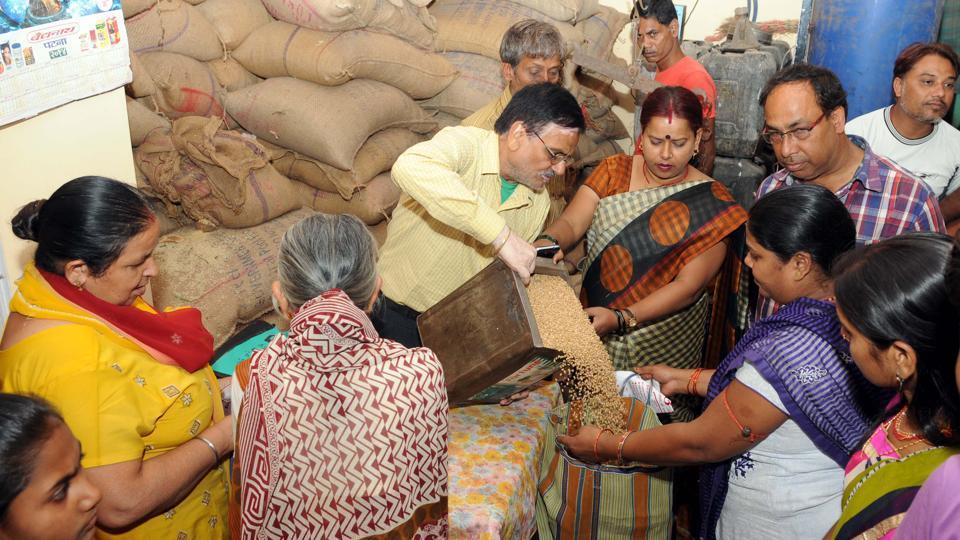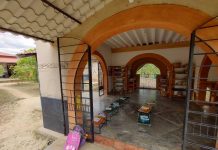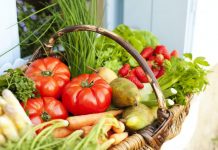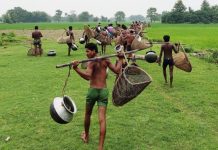The article explores the many possibilities and limitations to the PDS system in the state of Tamil Nadu and tries to look for alternatives that are better suited to the needs of the present times and give adequate benefits to the state.
Mahendran Arumugam is a research scholar at Tata Institute of Social Sciences, (TISS), Mumbai.
In recent years, the prices of commodities falling under the public sector have highly increased and this holds true for the state of Tamil Nadu too. For example, electricity bills, milk Products, transport costs (local and long distance), household water supply and local taxes, state government employee’s income tax, cinema tickets are all offered at a severely high price. Why have we not worked towards enhancing and developing the Public Distribution System (PDS) supply of food grain and regulating their prices? The price of rice has been decreased since 2011 and today 20kgs of rice is distributed free of cost to a family. Other food grain items are also offered at a far cheaper price when compared to the open market. This is not a real success of PDS, it is ‘Political PDS’ running in the state. The state economy is better off and functions better in terms of the different welfare schemes, but what it certainly does need is economic stability.

On the 1st of November 2017 for the first time in PDS stores, the price of sugar was increased. The main reason given for this price hike was that sugar mills depend on the production of sugarcane, and thus the sugar price was increased. The sugar price in AAY cards is Rs13.50/Kg and all other cards (BPL, APL, and Police cards) Rs.25/Kg. Compared to the open market price where the price is nearly Rs.40/Kg the price of sugar under subsidy in quite low. The increasing price of sugar distribution is a good move for the PDS in the state. Not only sugar price but it is also a must to increase the price of other food grains. It offers alternatives to the PDS in the state.
Commodity Price in Fair Price Shops
| Commodity | Quantity | Price |
| Rice | 20 kg all cards- 35kg AAY | Free of Cost at 1.6.2011 on words |
| Wheat | 5kg to 10kg(one kg packet) | Rs.7.50 |
| Sugar(recent) | 1kg | Rs.13.50 AAY and all other cards Rs.25 |
| Fortified Palmolein oil | 1 liter | Rs.25 |
| Toor Dal | 1kg | Rs.30 |
| Urad Dal | 1kg | Rs.30 |
| Tea | 100 gram | Rs.15 |
| Salt | 1kg | Rs.3 |
Sources: http://www.tncsc.tn.gov.in/PDS.html
Why it is necessary to increase the price value
Why is it necessary to increase the price level? It is important because it will benefit the state. Wheb we try to compare the above price details of food grain and other commodities to the prices offered in open markets, we discover that it is very less. For example, 1kg of salt is priced at Rs.3 but the original manufacturing cost is maximum 50 paise. Cultivation cost of paddy is Rs.1549 (Qtl/per hectare) including the risk approximation related to the agricultural problems of farming, but rice up to a certain quantity is being distributed free of cost. This creates major economic burden for the state government.
The state of Tamil Nadu has the third largest economy in India. Over 50% of its area is urbanized. The economy of the state contributes to service sector at 45%, followed by industry at 34% and agriculture at 21%. The per capita income was at 6.86% in the state during 2013-14, all India level the per capita income was at 2.84%during the same year. Tamil Nadu’s per capita income now is better, also higher than other southern states.
The state fair price shops are functioning well. They have started introducing smart cards and constantly update information via Short Message Service (SMS). The existing PDS provides better for the requirement of food grains of the public. Quantity and quality of supplied food grains are highly acceptable. It must now increase the food commodity prices. It will bring benefits to the state government. However, it’s not possible to stop any food grains supply, because sales are higher in the fair price shops. In addition, the PDS will come to the State’s independent control. The state cannot depend upon central subsidy to revive its economic stability. The increased price of products in the open market is being largely accepted by the public, there is no reason why the enhancement of prices in ration shops shall create any havoc. In addition to the initiatives taken in the recent past to strengthen the PDS some additional measure are called for. It is suggested that essential commodities such as rice, lentils, sugar be supplied in leak-proof packets to avid leakage and to ensure the consumer of its hygiene and quality. Moreover, sealed packets of 1/2/5 Kgs ensures that there is no discrepancy in the price paid and the amount received. It will also help to lessen the workload of ration shop employees and be more attractive for the public. Such important steps will strike the right balance between state’s needs and the revival of ration/PDS systems in the state.
The New Leam has no external source of funding. For retaining its uniqueness, its high quality, its distinctive philosophy we wish to reduce the degree of dependence on corporate funding. We believe that if individuals like you come forward and SUPPORT THIS ENDEAVOR can make the magazine self-reliant in a very innovative way.














